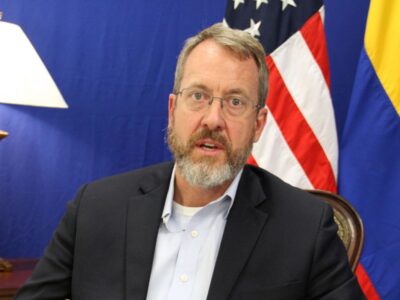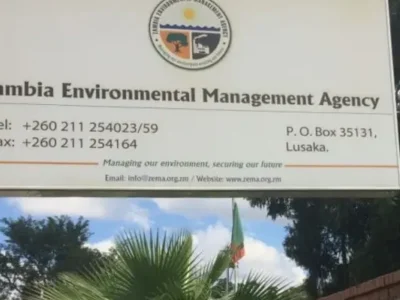The World Food Programme (WFP) has called on Southern African Development Community (SADC) countries, including Zambia, to leverage technology to address the effects of climate change, such as drought.
WFP Deputy Regional Director for Southern Africa, Adeyinka Badejo, emphasized the importance of SADC countries like Zambia, Zimbabwe and Malawi familiarizing themselves with technological systems and disseminating this information through government channels.
Badejo made these remarks during a briefing on the El Nino emergencies in Southern Africa at the 26th session of the General Assembly of the WFP Parliamentary League of Japan.
According to a statement issued in Lusaka on Monday by Faith Chilube, First Secretary for Press and Public Relations at the Zambian mission in Tokyo, Japan, Badejo highlighted that such information could significantly support the development of these countries and reduce reliance on food imports.
WFP Japanese Parliamentary League Chief Secretary, Dr Kuniko Inoguchi, urged the Japanese government to assist SADC countries by providing access to weather technology systems.
Inoguchi stressed that data from Japanese space satellites could enhance these countries’ planning and food security by providing critical information on when to plant and which crop varieties to use.
“There is an urgent need to assist SADC countries, especially those severely affected by El Nino, with technology systems to better manage their ecosystems and ensure sustainability,” Inoguchi said.
She added that such information would guide agricultural practices and boost the sector holistically.
Inoguchi also said that sharing new technology globally was crucial for sustainability and increased food production.
She noted that the upcoming TICAD 9 should prioritise this issue as a key strategy for mitigating natural disasters’ effects and ensuring no one was left behind.
WFP Parliamentary League president, Masahiro Komura, reaffirmed the commitment of many parliamentarians to human development and pledged support for this cause.
Zambia’s Ambassador to Japan, Dr Tobias Mulimbika, acknowledged the benefits of technological advancements for Zambia’s agricultural vision.
He mentioned strategies like water harvesting, irrigation and conservation, noting that new technology would enhance these efforts.
“Zambia has declared the El Nino-induced drought a national disaster, threatening food security and affecting over one million farmers,” Mulimbika stated.
He noted that access to Japanese space satellite data could help mitigate the impacts of climate change and natural disasters in Zambia.
“It is crucial for Zambia to benefit from such technologies, which will help farmers improve their activities by identifying appropriate crops based on predicted rainfall patterns and optimal planting times,” he added.
The Ambassador emphasized that this information would also aid in preparing suitable storage facilities after harvesting, thus contributing to food security.
Mulimbika expressed gratitude to the WFP for its ongoing support to Zambia.
WARNING! All rights reserved. This material, and other digital content on this website, may not be reproduced, published, broadcast, rewritten or redistributed in whole or in part without prior express permission from ZAMBIA MONITOR.












Comments